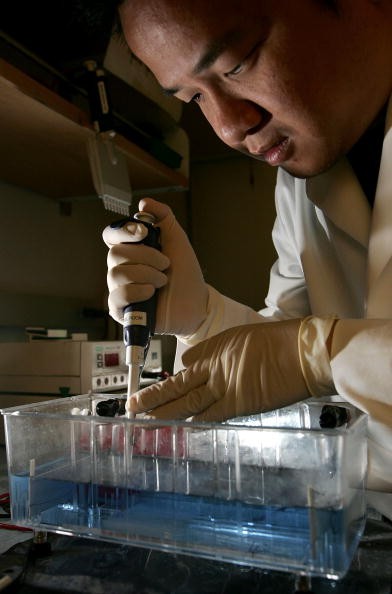A group of 152 Chinese oncologists will will set up a national database of patients to identify genetic faults that can increase the risk of cancer.
In the process, they will compile the country's first clinical guidelines on hereditary cancer and assess the effectiveness of targeted cancer therapies directed against certain types of faulty genes.
According to Beijing Cancer Hospital President Ji Jiafu, cancers of the ovary, breast and gastrointestines have strong genetic links.
He added that those with faulty genes are more likely to develop cancer at a younger age and without early signs of illness. The gene identification may help people with faulty genes detect cell mutation at an earlier stage.
Meanwhile, Australian scientists made a breakthrough with the discovery of a genetic link to a rare form of cancer that could eventually lead to earlier detection and better treatments.
Using whole genome sequence, researchers discovered that many as one out of five patients with pancreatic neuroendocrine tumors carry a faulty gene that may increase the risk of developing this cancer even without a family history of the disease.
According to study co-leader Professor Sean Grimmond of the University of Melbourne, they were surprised to find similarities between the genetic drivers of pancreatic neuroendocrine tumors and other cancers.
He noted that some of the genes associated with colon or breast cancer risks are actively playing a role in pancreatic neuroendocrine tumors.
Early intervention is vital in curing certain types of cancer, most notably glandular and breast cancer, and is helpful in improving the quality of life for patients with most other types of cancer.
It was revealed by the national tumor register center that in every 100,000 people in China, 271 develop cancer. In 2013, there were 2.2 million Chinese who died of cancer, with lung, liver and gastric cancer being the most prevalent.



























